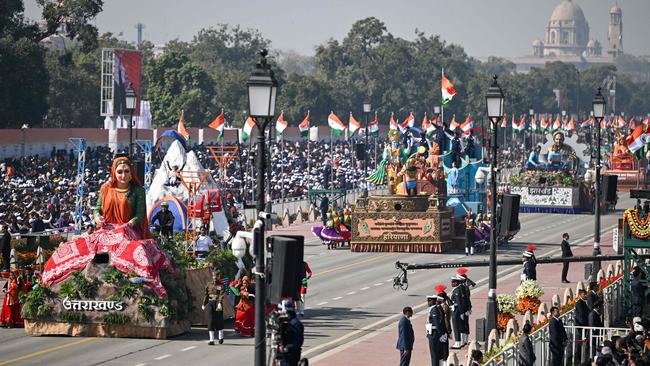Muslim-Hindu tensions as India trials uniform marriage laws
Polygamy has been outlawed, marriage is not allowed until the age of 21 for men and 18 for women, and sons and daughters must have equal inheritance rights.

Marriage, divorce and inheritance laws are being unified for the first time since independence in India, banning Muslims from practising sharia in one northern state where the reforms first take effect.
From Monday in Uttarakhand, polygamy has been outlawed, marriage is not allowed until the age of 21 for men and 18 for women, and sons and daughters must have equal inheritance rights.
Until now, India’s many different religions have applied their own creeds and customs, most notably the country’s 200 million Muslims.
A uniform set of laws is a profoundly contentious subject in a country where vast religious diversity is allied with strong religious beliefs.
It is perhaps no surprise, then, that Narendra Modi’s Hindu nationalist government has chosen a state with a small Muslim population, sparsely spread out in the mountains, in which to introduce it.
The state’s Chief Minister, Pushkar Singh Dhami, is a member of Mr Modi’s ruling Bharatiya Janata Party and hopes to emerge as a prominent figure after being the first to implement the reforms. For the BJP, the new Uniform Civil Code is an experiment which, if deemed a success, will be extended to other states governed by the party.
Such a code has been a cardinal principle of the BJP’s ideology and agenda for decades.
Mr Dhami has sold it as a victory for women.
“Under the code, we are attempting to bring uniformity in all laws relating to personal civil matters that discriminate on the basis of caste, religion, sex,” he said in a post on X.
Islamic theologians and clerics oppose any uniform civil code as a violation of their right to practise their faith, a right granted under the constitution.
Neerja Choudhary, a political analyst, said Mr Dhami’s state had been chosen for the trial because it was relatively small, had a strong Hindu ethos, and its Muslim population – about 14 per cent – was dispersed over Uttarakhand’s mountainous terrain. “It’s unlikely there will be a concerted reaction from Muslims and if it goes through quietly, the BJP will definitely push for a similar code in the other states it rules,” Choudhary said.
Even liberal Muslims and women’s rights groups, who see sharia as a way for clerics to oppress women, are unlikely to get behind the new code. For them, it is all part of the BJP’s campaign to marginalise Muslims since coming to power in 2014.
Indeed, they say part of it will violate women’s rights and privacy by making it a requirement for couples who live together to register the fact with the state. They say this will make women targets for conservative fringe groups who see cohabitation as sinful.
Zakia Soman, a Muslim women’s rights activist, agrees with Mr Dhami on one point: women will be liberated from the primal fear of their husband bringing home a new wife, she says, blaming the clergy for not having reformed Islamic law themselves.
But she too is sceptical. “Why has the federal government not introduced it for all states if it is so committed to gender justice? Why leave it to Uttarakhand? It makes you wonder about their real motives.”
For the wider Muslim community, the mood is one of resignation born of defeat.
“This is an anti-Muslim law brought by a Hindu majoritarian government,” said Taslim Ahmed Rehmani, head of the Muslim Political Council of India. “But there won’t be protests or demonstrations because Muslims have given up. They know the Hindu majority has prevailed.”
The Times



To join the conversation, please log in. Don't have an account? Register
Join the conversation, you are commenting as Logout